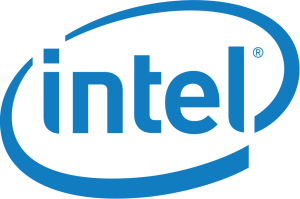- Qualcomm Launches Snapdragon 4 Gen 2 Mobile Platform
- AMD Launches Ryzen PRO 7000 Series Mobile & Desktop Platform
- Intel Launches Sleek Single-Slot Arc Pro A60 Workstation Graphics Card
- NVIDIA Announces Latest Ada Lovelace Additions: GeForce RTX 4060 Ti & RTX 4060
- Maxon Redshift With AMD Radeon GPU Rendering Support Now Available
FTC Investigates Intel’s Alleged Anti-Competitive Practices
Intel’s blue logo couldn’t be more appropriate for the company this year, as it has had one hassle to deal with after another. In the latest case, none other than the FTC is speaking up against the company’s anti-competitive tactics, which according to the it has “stifled innovation and harmed consumers“. Well, I’m not sure about the latter, because “harmed” seems like a strange word to use in a case like this, but whatever the result, Intel sure can’t shake this off quick enough.
The FTC isn’t being too subtle in its accusations, either, stating, “Intel has engaged in a deliberate campaign to hamstring competitive threats to its monopoly“. Overall, the FTC believes that Intel has been deceptive, and unfair to both its competition and the end consumer, and it wants Intel to remedy all of the damage done. Of course, the remedy would likely result in even more money being given to AMD, but we’ll have to wait and see.
Intel has been quick to respond to the FTC’s accusations, stating that “Intel has competed fairly and lawfully. Its actions have benefitted consumers. The highly competitive microprocessor industry, of which Intel is a key part, has kept innovation robust and prices declining at a faster rate than any other industry. The FTC’s case is misguided. It is based largely on claims that the FTC added at the last minute and has not investigated. In addition, it is explicitly not based on existing law but is instead intended to make new rules for regulating business conduct. These new rules would harm consumers by reducing innovation and raising prices.“
Intel goes on to say that the issue should have been settled long ago, but the FTC insisted on unprecedented remedies, all of which could result in making it “impossible” for Intel to conduct business. Even further, Intel also states that this case will cost American taxpayers tens of millions of dollars to pursue, and that the issue it hasn’t even been “fully investigated”. Intel wraps up its press release stating that it has invested $7 billion into its US manufacturing operations and has over 40,000 employees domestically.
There’s a lot of back and forth going on here, and from an outsider’s standpoint, it’s hard to see who’s right and who’s wrong. When Intel settled with AMD last month, I figured that would be the last we heard of it, but not so. It’ll be interesting to see where this goes, and see whether or not it results in Intel coughing up even more money.

The FTC’s administrative complaint charges that Intel carried out its anticompetitive campaign using threats and rewards aimed at the world’s largest computer manufacturers, including Dell, Hewlett-Packard, and IBM, to coerce them not to buy rival computer CPU chips. Intel also used this practice, known as exclusive or restrictive dealing, to prevent computer makers from marketing any machines with non-Intel computer chips.
| Source: FTC Press Release |
Discuss: Comment Thread
|




